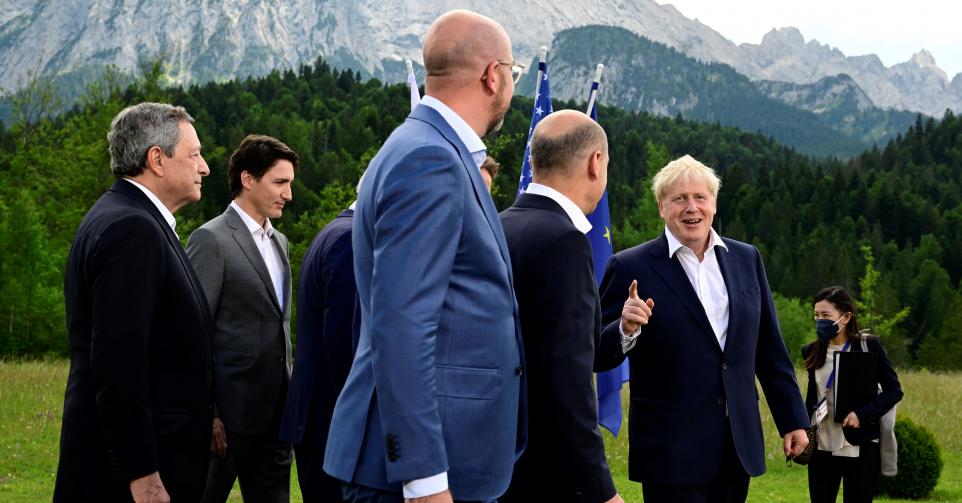Amidst a war in Europe, skyrocketing inflation and a global food crisis, Western leaders have been discussing common solutions to the growing number of issues facing the G7 powers at their annual summit in Germany, which began on Sunday.
The main topic on the agenda is energy, as the rising prices are the underlying cause of inflation. Western democracies are facing shortages due to sanctions on Russia since it invaded Ukraine. The G7 member states will be discussing both short and long-term solutions.
Russia’s war on Ukraine
Undoubtedly connected to the energy crisis is Russia’s war on Ukraine, which will also be an important topic of discussion. As Ukraine has been granted EU candidate status, the G7 members will discuss how to move forward.
Finding alternatives to fossil fuels from Russia will be “at the heart of the discussions”, according to a senior US government official.
The summit should show, according to German Chancellor Olaf Scholz, “that the democracies of the world stand side by side in the fight against Putin’s imperialism, as well as in the fight against hunger, poverty, health crises and climate change”.
Related News
- Climate march planned for 23 October in Brussels ahead of COP27
- Western Balkans frustration at the EU reaches boiling point
- Flemish communes see high inflation as a major financial threat
Scholz also said a “Marshall Plan” is needed to keep the Ukrainian economy going, referring to the US’ financial aid plan to help Europe in its recovery after World War II. The main concern will be to limit the consequences of sanctions on Russia for western citizens, as leaders fear they might lose support for Ukraine if the consequences are too severe.
Economic competition with China
Meanwhile, Russia is not the only issue that the G7 are dealing with, as China is currently heavily investing in Asian and African countries in hopes of gaining international power.
One of the country’s projects is the renewed China Silk Road, the ancient trade route connecting Asia and Europe. However, the West has proposed a $600 billion western opponent to the new Silk Road, as Biden will launch a global infrastructure plan.
Climate change has shifted from being a major concern to a lesser priority, as Germany and Italy have already started using more coal to combat the gas shortage. Short-term, climate is not a priority, though the EU ensures it is long-term.
Who is in the G7?
The seven countries are the world’s largest economies and have been meeting since 1973 to discuss the global economy, trade, security and climate policy. The G7 members are the United States, Japan, Germany, the United Kingdom, France, Canada and Italy.
The European Union participates in the consultations but is not an official member, as it’s not a country. At the current summit, Senegal, Argentina, India, Indonesia and South Africa are also invited.
The members initially joined forces in response to the oil crisis in 1973, while in 2022, it is the gas crisis.

